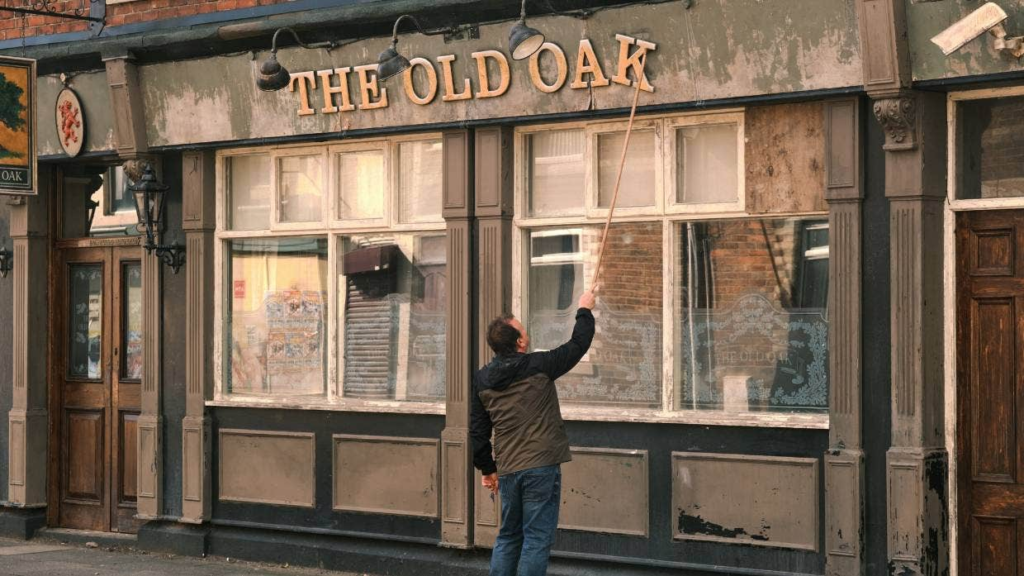The Old Oak Reviewed by GREG KING
Director: Ken Loach
Stars: Dave Turner, Ebla Mari, Claire Rodgerson, Trevor Fox, Chris McGlade, Col Tait, Chrissie Robinson, Chris Gotts, Jen Patterson, Arthur Oxley, Joe Armstrong, Andy Dawson.

This is widely regarded as likely to be the final film from revered 86-year-old British director Ken Loach, who for over six decades has championed the working class and their concerns. His film career began in 1967 with Poor Cow and since then Loach’s films have always tackled contemporary social issues with unflinching honesty and insight. The Old Oak is no exception and is a quintessential Loach drama.
The Old Oak is set in Durham, an impoverished former mining town in the northeast of England. Since the pits closed down many people have left the town for greener pastures, and the empty houses and cheap properties have made it an ideal location to house refugees from war torn countries like Syria.
The hub of the town seems to be the local pub, the Old Oak, run by the gruff T J Ballantyne (Dave Murphy). When a group of Syrian refugees arrive in the village their presence stirs up tensions amongst the locals who resent the foreigners and the way in which they seem to gain favourable treatment from a government that has neglected them. T J tries to remain neutral and not get caught up in the casual racism, but after he does a favour for Yara (Ebla Mari), a curious young Syrian refugee and amateur photographer, he feels the sting of rejection from many of his loyal regulars and old friends whose xenophobic attitudes and ingrained prejudices shape their opinion of the new arrivals.
With Yara’s help T J hits on a way to try and bring the two communities together by opening up the pub’s backroom, which has been closed off for over a decade, and using it to serve up communal meals.
Written by Loach’s regular collaborator Paul Laverty, The Old Oak deals with themes of loss, grief, community, the plight of refugees and their dreams for a better life, community and a sense of belonging, and it treats their situation with empathy, compassion and insight. But amidst many bleak moments there are also many moments of optimism and hope that keep it from becoming overly saccharine or melodramatic. The film is populated with working class characters who are recogniseable, and the dialogue sounds authentic and rings true. The film was nicely shot by veteran cinematographer Robbie Ryan who gives us a strong sense of place. George Fenton’s score is also atmospheric.
Most of the cast is comprised of non-professionals, and their performances seem natural and unforced. Turner, who has appeared in smaller roles in Loach’s past two films, delivers a natural performance that exudes both charm and a sense of weariness and cynicism. In her first film role, Mari brings grace and intelligence to her performance.
In the end it is not hard to remain unmoved by the film, and if The Old Oak is indeed Loach’s swansong it is a fitting end to his storied career.
★★★★



